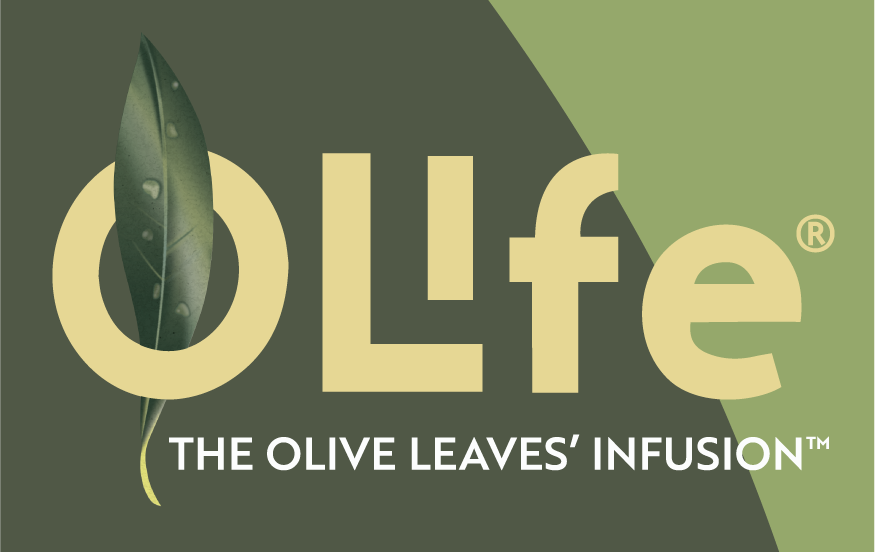Bibliographie scientifique
FONCTION ANTIMICROBIENNE
Aliabadi, M. A., Darsanaki, R. K., Rokhi, M. L., Nourbakhsh, M., & Raeisi, G. (2012). Antimicrobial activity of olive leaf aqueous extract. Annals of Biological Research, 3(8), 4189-4191. Bayram, M., Topuz, S., & Kaya, C. (2020). Antioxidant, Antimicrobial Activity of Olive Leaf Extract and Oleuropein, Their Possibilities Usage in Foods. Turkish Journal of Agriculture-Food Science and Technology, 8(2), 337-347. Sánchez-Gutiérrez, M., Bascón-Villegas, I., Rodríguez, A., Pérez-Rodríguez, F., Fernández-Prior, Á., Rosal, A., & Carrasco, E. (2021). Valorisation of Olea europaea L. Olive leaves through the evaluation of their extracts: antioxidant and antimicrobial activity. Foods, 10(5), 966. Moatari, A., MOTAMEDIFAR, M., & NEKOUEIAN, A. (2006). The Antiinfluenza Virus Activity of Hydroalcoholic Extract of Olive Leaves. Ben-Amor, I., Musarra-Pizzo, M., Smeriglio, A., D’Arrigo, M., Pennisi, R., Attia, H., ... & Sciortino, M. T. (2021). Phytochemical Characterization of Olea europea Leaf Extracts and Assessment of Their Anti-Microbial and Anti-HSV-1 Activity. Viruses, 13(6), 1085.
FONCTION ANTIOXYDANTE
Borjan, D., Leitgeb, M., Knez, Ž., & Hrnčič, M. K. (2020). Microbiological and antioxidant activity of phenolic compounds in olive leaf extract. Molecules, 25(24), 5946. Aydar, A., Öncü Öner, T., & Ücok, E. F. (2017). Effects of hydroxytyrosol on human health. EC Nutrition, 11(4), 147-157. Yuan, J. J., Wang, C. Z., Ye, J. Z., Tao, R., & Zhang, Y. S. (2015). Enzymatic hydrolysis of oleuropein from Olea europea (olive) leaf extract and antioxidant activities. Molecules, 20(2), 2903-2921. Bertelli, M., Kiani, A. K., Paolacci, S., Manara, E., Kurti, D., Dhuli, K., ... & Michelini, S. (2020). Hydroxytyrosol: A natural compound with promising pharmacological activities. Journal of Biotechnology, 309, 29-33. Briante, R., Patumi, M., Terenziani, S., Bismuto, E., Febbraio, F., & Nucci, R. (2002). Olea europaea L. leaf extract and derivatives: antioxidant properties. Journal of agricultural and food chemistry, 50(17), 4934-4940.
PROBLÈMES CARDIOVASCULAIRES
Giovannini, C., Straface, E., Modesti, D., Coni, E., Cantafora, A., De Vincenzi, M., ... & Masella, R. (1999). Tyrosol, the major olive oil biophenol, protects against oxidized-LDL-induced injury in Caco-2 cells. The Journal of nutrition, 129(7), 1269-1277. Miloradovic, Z., Mihailovic-Stanojevic, N., Milanovic, J. G., Ivanov, M., Dekanski, D., & Jovovic, D. J. (2011). ANTIHYPERTENSIVE AND CARDIOPROTECTIVE EFFECTS OF OLEA EUROPEA LEAF EXTRACT IN GENETICALLY HYPERTENSIVE RATS: PP. 33.114. Journal of Hypertension, 29, e464. Perrone, M. A., Gualtieri, P., Gratteri, S., Ali, W., Sergi, D., Muscoli, S., ... & Romeo, F. (2019). Effects of postprandial hydroxytyrosol and derivates on oxidation of LDL, cardiometabolic state and gene expression: A nutrigenomic approach for cardiovascular prevention. Journal of Cardiovascular Medicine, 20(7), 419-426. D’Angelo, C., Franceschelli, S., Quiles, J. L., & Speranza, L. (2020). Wide biological role of hydroxytyrosol: Possible therapeutic and preventive properties in cardiovascular diseases. Cells, 9(9), 1932. Hassan Gilani, A., Khan, A. U., Jabbar Shah, A., Connor, J., & Jabeen, Q. (2005). Blood pressure lowering effect of olive is mediated through calcium channel blockade. International Journal of Food Sciences and Nutrition, 56(8), 613-620. Susalit E, Agus N, Effendi I, Tjandrawinata RR, Nofiarny D, Perrinjaquet-Moccetti T, Verbruggen M. Olive (Olea europaea) leaf extract effective in patients with stage-1 hypertension: comparison with Captopril. Phytomedicine. 2011 Feb 15;18(4):251-8.
HYPERGLYCEMIE
Guex, C. G., Reginato, F. Z., de Jesus, P. R., Brondani, J. C., Lopes, G. H. H., & de Freitas Bauermann, L. (2019). Antidiabetic effects of Olea europaea L. leaves in diabetic rats induced by high-fat diet and low-dose streptozotocin. Journal of ethnopharmacology, 235, 1-7. Wainstein, J., Ganz, T., Boaz, M., Bar Dayan, Y., Dolev, E., Kerem, Z., & Madar, Z. (2012). Olive leaf extract as a hypoglycemic agent in both human diabetic subjects and in rats. Journal of medicinal food, 15(7), 605-610. El, S. N., & Karakaya, S. (2009). Olive tree (Olea europaea) leaves: potential beneficial effects on human health. Nutrition reviews, 67(11), 632-638. Derosa, G., D’Angelo, A., Maffioli, P. (2022). Olea europaea effects on glyco-metabolic parameters and on glycemic status in patients with impaired fasting glucose. Journal of Food and Nutrition Research, 10(10), 674-680.
FONCTION ANTI-INFLAMMATOIRE
Vezza, T., Algieri, F., Rodríguez‐Nogales, A., Garrido‐Mesa, J., Utrilla, M. P., Talhaoui, N., ... & Gálvez, J. (2017). Immunomodulatory properties of Olea europaea leaf extract in intestinal inflammation. Molecular nutrition & food research, 61(10), 1601066. Musa, A., Shady, N. H., Ahmed, S. R., Alnusaire, T. S., Sayed, A. M., Alowaiesh, B. F., ... & Abdelmohsen, U. R. (2021). Antiulcer potential of olea europea l. Cv. arbequina leaf extract supported by metabolic profiling and molecular docking. Antioxidants, 10(5), 644. Qabaha, K., Al-Rimawi, F., Qasem, A., & Naser, S. A. (2018). Oleuropein is responsible for the major anti-inflammatory effects of olive leaf extract. Journal of medicinal food, 21(3), 302-305. Morvaridi, M., Jafarirad, S., Seyedian, S. S., Alavinejad, P., & Cheraghian, B. (2020). The effects of extra virgin olive oil and canola oil on inflammatory markers and gastrointestinal symptoms in patients with ulcerative colitis. European Journal of Clinical Nutrition, 74(6), 891-899. Abd Elmaksoud, H. A., Motawea, M. H., Desoky, A. A., Elharrif, M. G., & Ibrahimi, A. (2021). Hydroxytyrosol alleviate intestinal inflammation, oxidative stress and apoptosis resulted in ulcerative colitis. Biomedicine & Pharmacotherapy, 142, 112073.
AUTRES
Magrone, T., Spagnoletta, A., Salvatore, R., Magrone, M., Dentamaro, F., Russo, M. A., ... & Jirillo, E. (2018). Olive leaf extracts act as modulators of the human immune response. Endocrine, Metabolic & Immune Disorders-Drug Targets (Formerly Current Drug Targets-Immune, Endocrine & Metabolic Disorders), 18(1), 85-93. Özcan, M. M., & Matthäus, B. (2017). A review: Benefit and bioactive properties of olive (Olea europaea L.) leaves. European Food Research and Technology, 243(1), 89-99. Angeloni, C.; Malaguti, M.; Barbalace, M.C.; Hrelia, S. Bioactivity of Olive Oil Phenols in Neuroprotection. Int. J. Mol. Sci. 2017, 18, 2230. Morvaridi, M., Jafarirad, S., Seyedian, S. S., Alavinejad, P., & Cheraghian, B. (2020). The effects of extra virgin olive oil and canola oil on inflammatory markers and gastrointestinal symptoms in patients with ulcerative colitis. European Journal of Clinical Nutrition, 74(6), 891-899.




